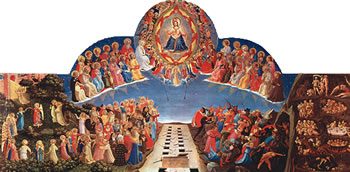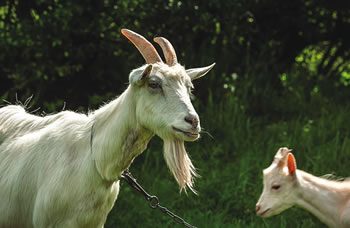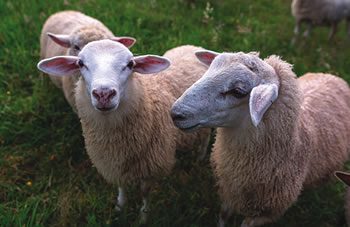Abba Father – Who Are You? (5)
Watching our Language with God
In the first article about Abba Father, we noted how, in talking about God, we reach a point when we run out of words. God’s mystery is so vast that, ultimately, we are reduced to silence. We can only sit still, wonder, desiring “we know not what”. It’s Faith reduced to living in Hope.
We find this in unexpected places and people. Hope’s deep-seated impulse to search for something more cuts across differences in cultures and beliefs. Consider the words of the atheist philosopher Bertrand Russell:
The centre of me is always and eternally a terrible pain – a curious wild pain – a searching for something beyond what the world contains, something transfigured and infinite – the beatific vision--God--I do not find it, I do not think it is to be found, but the love of it is my life--it fills every passion that I have – it is the actual spring of life within me.
This “something transfigured and infinite…beyond what the world contains” is, in Christian faith, represented in the God who “dwells in unapproachable light”, namely, Abba Father.
Australian theologian, Gerald O’Collins S.J., has described theology as “watching one’s language in the presence of God”. These days, we are more conscious of how male words for God only partly capture the divine reality. We need feminine language to provide a balance. Think of Isaiah’s images of the maternal side of God: “Does a woman forget her baby at the breast?” (Isaiah 49:15).
Jesus himself was tentative in speaking about the kingdom of God: it is ‘like’ familiar realities from day-to-day life -- a seed, yeast, a treasure, a pearl -- but it is so much more, namely, “mysteries” (Matthew 11:10). Some parables highlight the limits, even distortions, that words can produce. Let’s take the final judgment scene in Matthew 25:31-46.
What is the benchmark for sharing in the Father’s “kingdom prepared for you since the foundation of the world”? The King appeals to one standard: how did you treat your neighbour, especially the most disadvantaged -- the hungry, thirsty, the stranger, those in prison etc. Why? Because the King identified with every human being: “you did it to me”, or “you neglected to do it to me”.
Further, the parable builds on a major contrast: ‘virtuous’ = sheep / right hand; and ‘not virtuous’ = goats / left hand. The contrasting images make a point. But like all analogies, they limp, and can even distort how we see the world.
Think about it. Why should goats be associated with the ‘baddies’? A goat is a multi-purpose animal. It can produce meat, milk, cheese, hide, fibre and manure. In hilly areas, goats are used for hauling light loads.
Further, another word is associated with ‘goats’, namely, being on the ‘left’ in contrast with ‘the virtuous’ – the sheep on the right. Think of how we use words today. The Latin word for ‘right’ is dexter from which we get ‘dextrous’. “She’s on the right side” is a statement not only about place but also about being morally acceptable. How often we use the word ‘right’ (place) to indicate who or what is ‘in the right.’ Again, normal is easily associated with ‘right’.
Alternatively, the Latin word for ‘left’ is sinister. In English, ‘sinister’ can mean threatening, wicked, criminal even. Think of words used for those who are left-handed and can, at times, suggest it is a disability. There is a bias, even condemning overtones, in the word ‘left’ -- e.g., dubious, devious. In French, left is gauche, which can mean 'awkward' or 'clumsy' in English, the opposite of dextrous. Abnormal is easily suggested by ‘left’.
Think of our parents and grandparents telling stories of how left-handed children at school were, perhaps, forced to write with their right hand. I recall a woman, Mary, telling me how, in primary school, that happened to her. Not long after, she stopped speaking.
Her puzzled and worried parents took her to their local doctor. The wise GP finally worked out what was going on. Mary’s loss of speech was a reaction to how she was treated: she was left-handed but forced to write with her right hand. Once that stopped, she gradually regained her speech. We know better now, thank God.
Until recent years, in the Rocks area of Sydney, you could find a ‘Left – Handed’ Shop where you could get, importantly, a left-handed pair of scissors.
So, language is interesting. Jesus struggled to find words and images. What would Jesus say when we, at times, use ‘right’ and ‘left’ in a way that diminishes people? He would not intend that, of course. He wanted to be part of our world. He accepted the limitations of our humanity and weakness.
Yet, in using parables, Jesus was ‘watching his language’ – the kingdom of God is ‘like’…??




 Entries(RSS)
Entries(RSS)